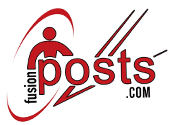How to conduct an Interview
Hiring the right person for the right job starts with conducting an effective face-to-face job interview. The job interview is a powerful factor in the employee selection process in most organizations. Background checking and checking references are also key factors in your hiring decisions. The job interview remains the tool you can use to get to know your candidate on a more personal basis.
Interviews can be structured or unstructured. Structured interviews ask all candidates a set of predetermined questions. It is one way to ensure that the same questions get asked to all of the candidates. It is often used to be able to show that the best person for the job was selected and that it was a fair interview for all of the candidates. Whilst unstructured ones are more informal and the interviewer can determine what they are going to ask the candidate, with this the conversation can flow freely.
Use the job interview tips below to improve your interviewing technique and avoid making hiring mistakes and thus reduce potential future expenses, such as recruitment and training, related to finding replacement workers. These will help you assess the skills, experience, and abilities of your potential employee to determine if that individual is the best fit for your job opening.
Selecting Candidates for the Job Interview
Each candidate CV/Resume should be reviewed and assessed against the job’s description and person specification to determine which candidates are most qualified for the position.
Preparing for the Job Interview
- Schedule interviews within reasonable time limits.
- Develop a schedule that does not adversely affect your other office responsibilities.
- Notify co-workers that you are not to be interrupted for matters that can wait until after the interview.
- Notify the candidate via a telephone call, inviting him or her to an interview. The invitation should state:
- Title of the position
- Time, location of the interview and directions.
- Where the candidate should report.
- Any information required at or prior to the interview, such as a resume.
- Consequences of not responding or failure to appear for the interview.
- The interview panel should review the job description prior to the interview, as well, familiarize themselves with a candidate’s resume and other paperwork before the interview. Not being familiar with a candidate’s information indicates that you are disorganized and poorly prepared.
- Plan the interview in advance and prepare a list of standard questions to be used as a guide to ask each candidate. Make sure that all questions asked during the interview are job-related for e.g. candidate’s skills, abilities and past work performance.
- Prepare a measurable criterion for analyzing and comparing the candidates.
Conducting the Job Interview
- Set the tone by extending a warm welcome to each candidate and express your appreciation that they have come in for the interview.
- Help candidates open up by introducing yourself and offering a brief overview of the company. Also, use this time to explain the interview procedure and then stick closely, but not rigidly, to the structure you prepared.
- Immediately attempt to develop a rapport with the candidate by breaking the ice with a few simple opening questions, including information pertaining to degrees earned, past employers and other questions with simple answers.
- Do not dominate the discussion by talking too much. Encourage the candidate to talk for the majority of the time, at least 80%.
- Politely probe the candidate for information by asking open-ended questions that will provide insight into the candidate’s values and traits or ask structured questions that will require some thought on the part of the candidate.
- Evaluate and seek to fully understand the candidate’s answers. If they do not provide you with specific results, probe further to get accurate answers. Listen actively and stay focused on the current question at hand.
- Take notes so that your memory will be triggered when it’s time to review the interview. The more people you interview for the position, the more important note-taking becomes.
- Study the candidate’s ‘body language’, that is non-verbal communications such as facial expressions, voice tone/pitch, body movements, etc.
- Avoid criticism or giving signs of disapproval (including non-verbal ones). Ensure you maintain rapport with the candidate throughout the interview.
Closing the Job Interview
- Ask the candidate if he/she has any further questions. Provide an opportunity to address any concerns or questions the candidate may have at the end of the interview.
- Inform candidate of what is the next step in the hiring process, e.g. check references, formally notify outcome of application (indicate a time frame for this), etc.
- Give the candidate an opportunity to turn the position down by asking if he/she is still interested in the position and find out when he/she would be available to start, if successful.
- Thank the candidate for his or her time.
After the Job Interview
- Organize and analyze the information immediately after the interview when memory is fresh.
- Rate each candidate on each of the criteria immediately following the interview so as to narrow the field regarding who to consider hiring for the position.
- Starting with your first choice, check references the candidate provided. References from former employers may be helpful in finding out about the candidate’s work habits and personal characteristics.
